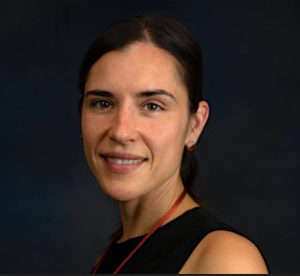
Hometown: San Luis Obispo, CA
Current Position: Assistant Professor, Department of Economics, Orfalea College of Business, California Polytechnic State University; Research Affiliate at the International Research Institute for Climate and Society at Columbia University
Professional Interests: experimental and development economics, regularization methods (ridge regression/tikhanov) and the inverse problem that address noisy and highly correlated data or ill-conditioned design matrices, relevant to non-parametric statistics, and big data
Why did you decide to join the Shevchenko Scientific Society?
I learned about the Shevchenko Scientific Society, while still an undergraduate at Columbia University, through my father, who was a board member of the Society at that time. I joined the Society in 2003; at that time I was working at the New York Federal Reserve Bank, as a research economist in International Economics, and gave a talk at the 130th anniversary of the Society. Considering my Ukrainian background and my academic interests, it was quite natural for me to join the Society.
What do you value about membership in the Society?
My heritage, the history of my family, and speaking Ukrainian are all very important to me. I maintain active ties with Ukrainian scholars and friends in Ukraine and would like to support networks of Ukrainian scholars through memberships like NTSHA. In the future, I hope to establish academic exchanges with Ukrainian universities at my institution, as well as spend time in Ukraine as a visiting scholar.
How did your interest in Ukrainian culture and society influence your career path?
Quite the reverse. My career path, a Ph.D. in applied microeconomics, influenced my interest in Ukrainian life, the Ukrainian household, and the decisions that Ukrainian families are making today around risk and economic livelihood, particularly in an agricultural and rural setting. Ukraine has been an agricultural society dating back to pre-history.
What is your current research/work project?
My research agenda follows two threads: applied empirical work within the field of development economics and methodological work at the cross-section of econometrics and machine learning. For example, I am finishing a research study, which was supported by the Bill and Melinda Gates Foundation, investigating the impacts of a large global development organization called Digital Green (DG) in India. DG trains smallholder farmers, female farmers in particular, through technology and grassroots-level partnerships. I am also working on methods of debiasing machine learning algorithms in learning-to-rank systems (i.e. search algorithms that rank results for a user) using techniques from econometrics and causal inference.
What career advice would you give for new members of the Shevchenko Scientific Society?
Bring innovations and new knowledge to the community. It is key for our own community’s engagement, and it is how Ukrainian scholars can continue to contribute to scientific knowledge at large. Find ways to spend time in Ukraine, speaking Ukrainian, and engaging with both today’s academic and grassroots cultures. It keeps our roots relevant.
